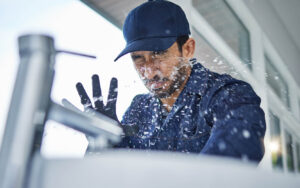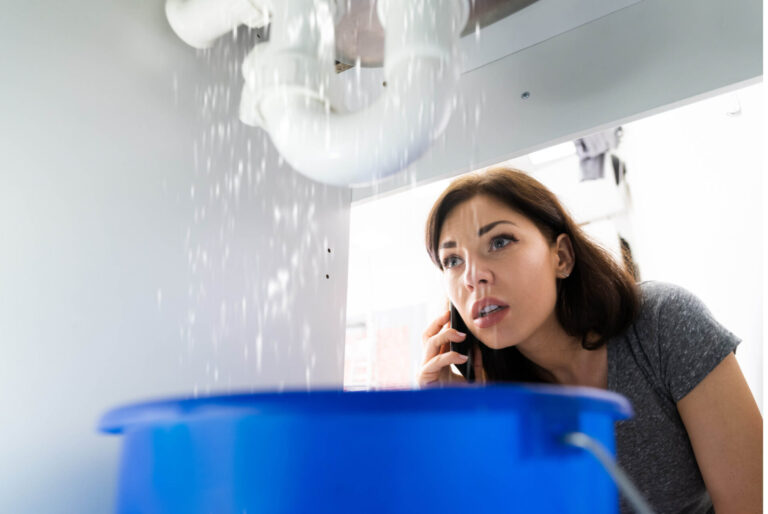Plumbing emergencies are a homeowner’s worst nightmare. From overflowing toilets to bursting pipes, these unexpected incidents can cause damage, stress, and even compromise the safety of your home’s inhabitants. With the potential to cause significant water damage and costly repairs, taking immediate action during such crises is crucial. Knowing the right steps to take can save valuable time, reduce damage, and get the plumbing system back in order sooner.
This article will explore the steps to take when unexpected plumbing issues happen.
Comprehending The Impacts Of Plumbing Catastrophes
Before we delve into the steps for handling a plumbing crisis, it’s vital to understand its potential consequences. For instance, extended exposure to leaking water can wreak havoc on flooring, joinery, and the very foundation of a dwelling. Moreover, the damp environment becomes a breeding ground for mould, posing health risks for inhabitants.
Considering these potential threats, it becomes crucial to consult with recommended plumbers in your area as soon as possible. You can check out credible resource websites to get more information.
Decisive Measures To Enact During A Plumbing Crisis
As mentioned, a plumbing crisis can be a major inconvenience, and if not handled promptly, it can lead to serious damage to your property. Hence, if you find yourself in a plumbing crisis, it’s important to take the following decisive measures to minimize the damage and restore normalcy as soon as possible:
- Cease The Water Flow
As the first step, it’s imperative to halt the ongoing water flow. If the situation pertains to a particular fixture, like an overflowing sink or tap, simply close the valve supplying water to that unit. In more dire circumstances, such as a ruptured pipe, locate and switch off the main water valve generally found close to the water meter.
- Disconnect Electricity
If water encroaches near electrical outlets or gadgets, ensure electricity is disconnected from the affected zone. Combining water with electricity can be perilous, and such a situation should be avoided at all costs.
- Evaluate The Problem’s Severity
Having mitigated immediate dangers, step back and appraise the crisis. Is it a trivial leakage amendable with a makeshift fix, or does the magnitude necessitate professional intervention? Identify how serious the problem is to know your next course of action and mitigate the risks associated with the plumbing emergency.
Why Engaging Professionals Is Often The Right Choice

While minor discrepancies might seem mendable with a DIY solution, in numerous instances, the expertise of a professional is non-negotiable. Here are the reasons why:
- Proficient Insight: An experienced plumber possesses the acumen and tools to swiftly discern and rectify the root of the problem. This can help resolve the present problem and anticipate and prevent future predicaments.
- Safety Assurance: Beyond their expertise, venturing into plumbing repairs without the requisite understanding can escalate the crisis. Mistakes can compound damage or even result in personal injuries. Seasoned plumbers have the training to manage emergencies with maximum safety protocols.
- Enduring Remedies: Additionally, ad hoc solutions might grant temporary relief but can fail in the long run. A professional will ensure that the remedial measures are both effective and enduring.
If you’re experiencing a plumbing emergency, it’s essential to call a professional immediately. Don’t attempt to fix the problem yourself, as this could put you at risk and could also cause further damage.
Proactive Steps For Future Preparedness
Fortifying your home against prospective plumbing misadventures is always a prudent strategy. Here are some proactive measures to consider when an emergency plumbing happens:
- Periodic Maintenance: Instituting a regimen of periodic plumbing check-ups can forewarn against impending issues. These inspections, when performed by professionals, can spot vulnerabilities, such as potential leaks and pipe wear to ensure they’re addressed timely.
- Cautious Waste Disposal: Be circumspect about what’s being dispatched down the drains. Refrain from flushing non-degradable items or pouring thick substances like oils and greases into sinks as they can cause clogs and other plumbing issues.
- Household Awareness: Educate all your household members regarding basic plumbing do’s and don’ts. For instance, knowledge about the location of the main water valve can be invaluable during a crisis.
- Water Detection Instruments: Installing devices that detect undue moisture or water accumulation can act as an early alert system, especially in areas prone to leaks. Some common devices include moisture meters, acoustic leak detectors, thermal imaging cameras, and tracer gas detectors. However, it’s crucial to know that water detection instruments may be difficult to use. So, if you’re unfamiliar with them, hiring a professional plumber to do the job for you is paramount.
By taking these proactive steps, you can help prevent plumbing emergencies from happening in the first place.
Conclusion
While plumbing emergencies are daunting, being well-informed and prepared can make a significant difference. By keeping the information mentioned above in mind, you can safeguard your home and reduce the potential fallout from unexpected mishaps.




